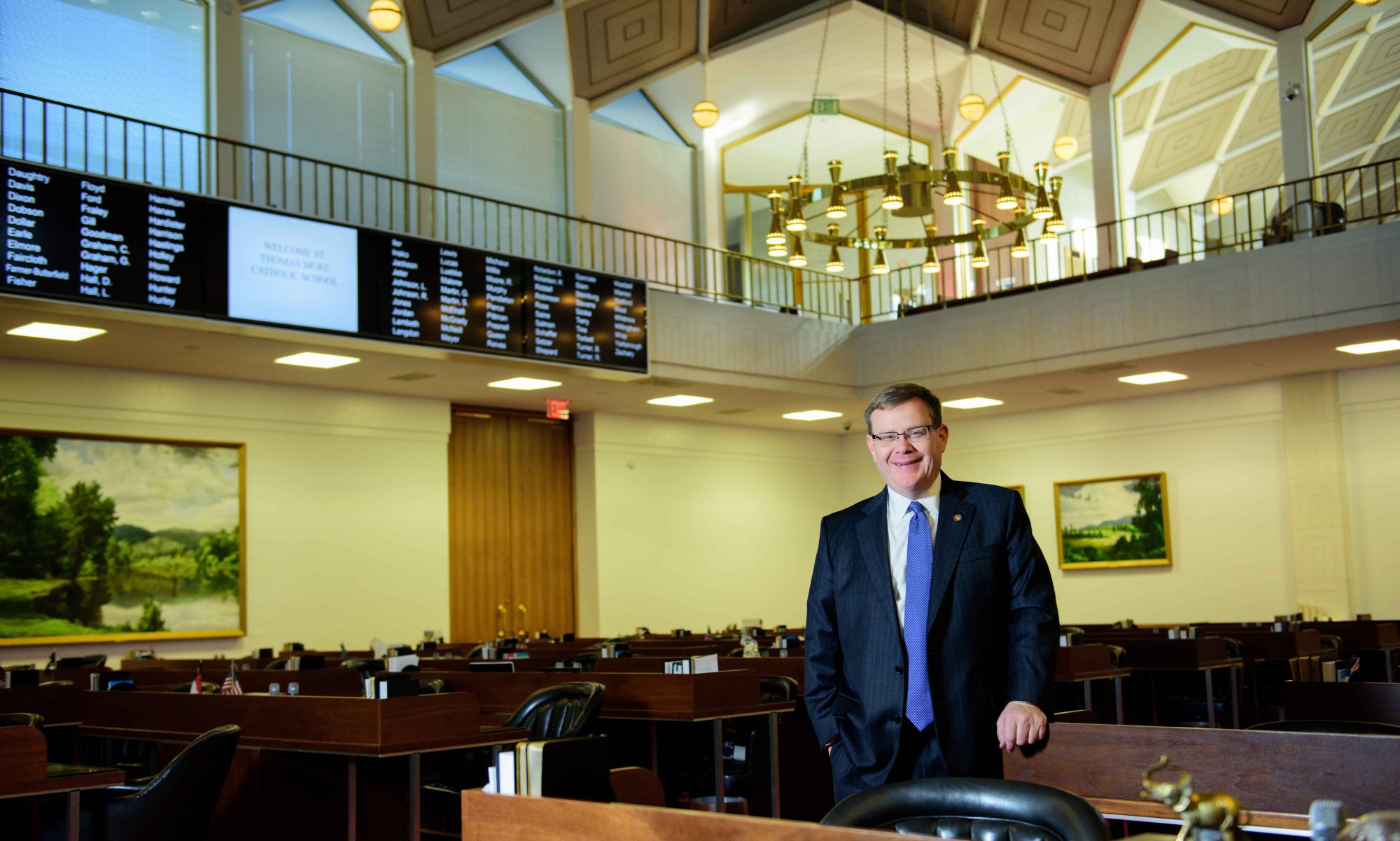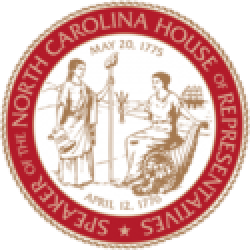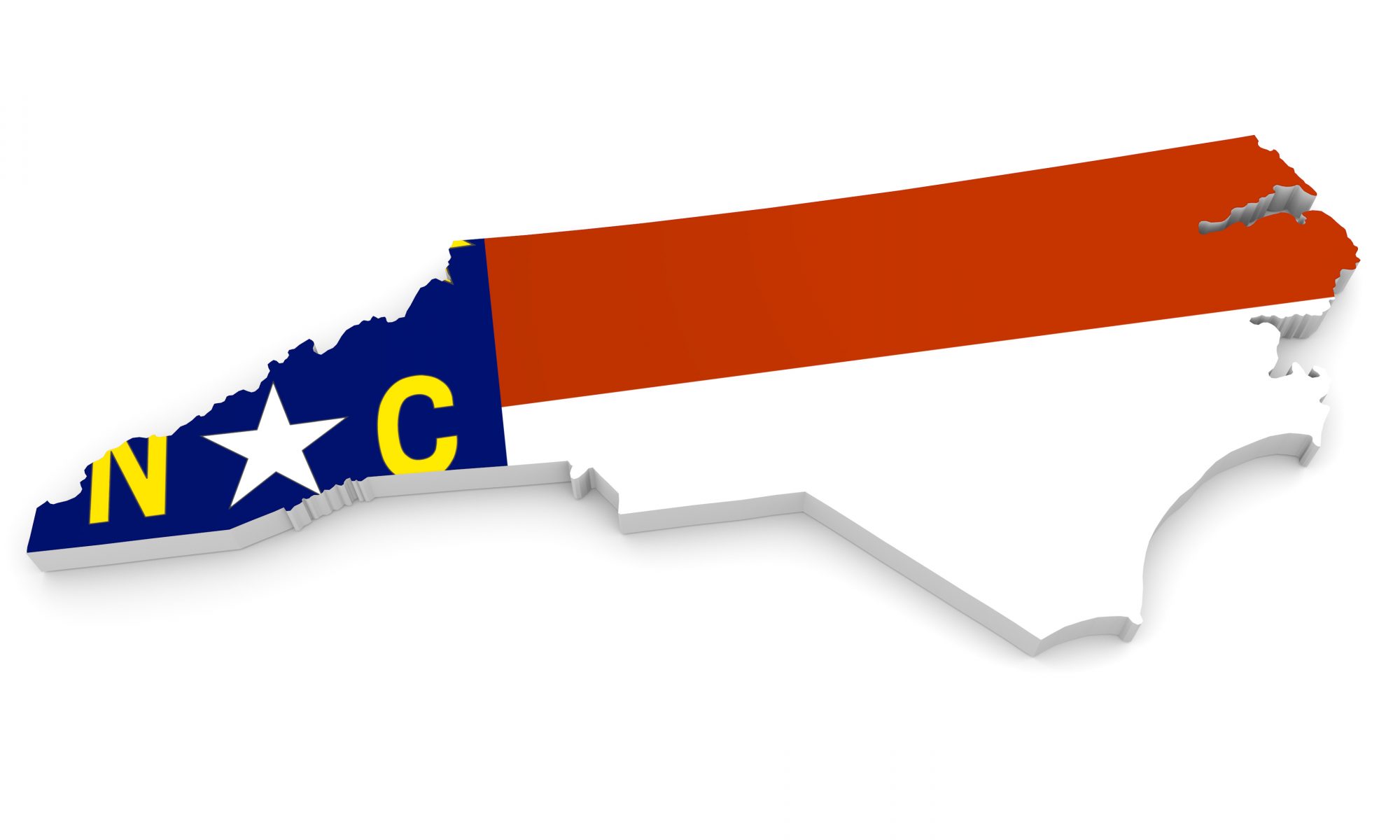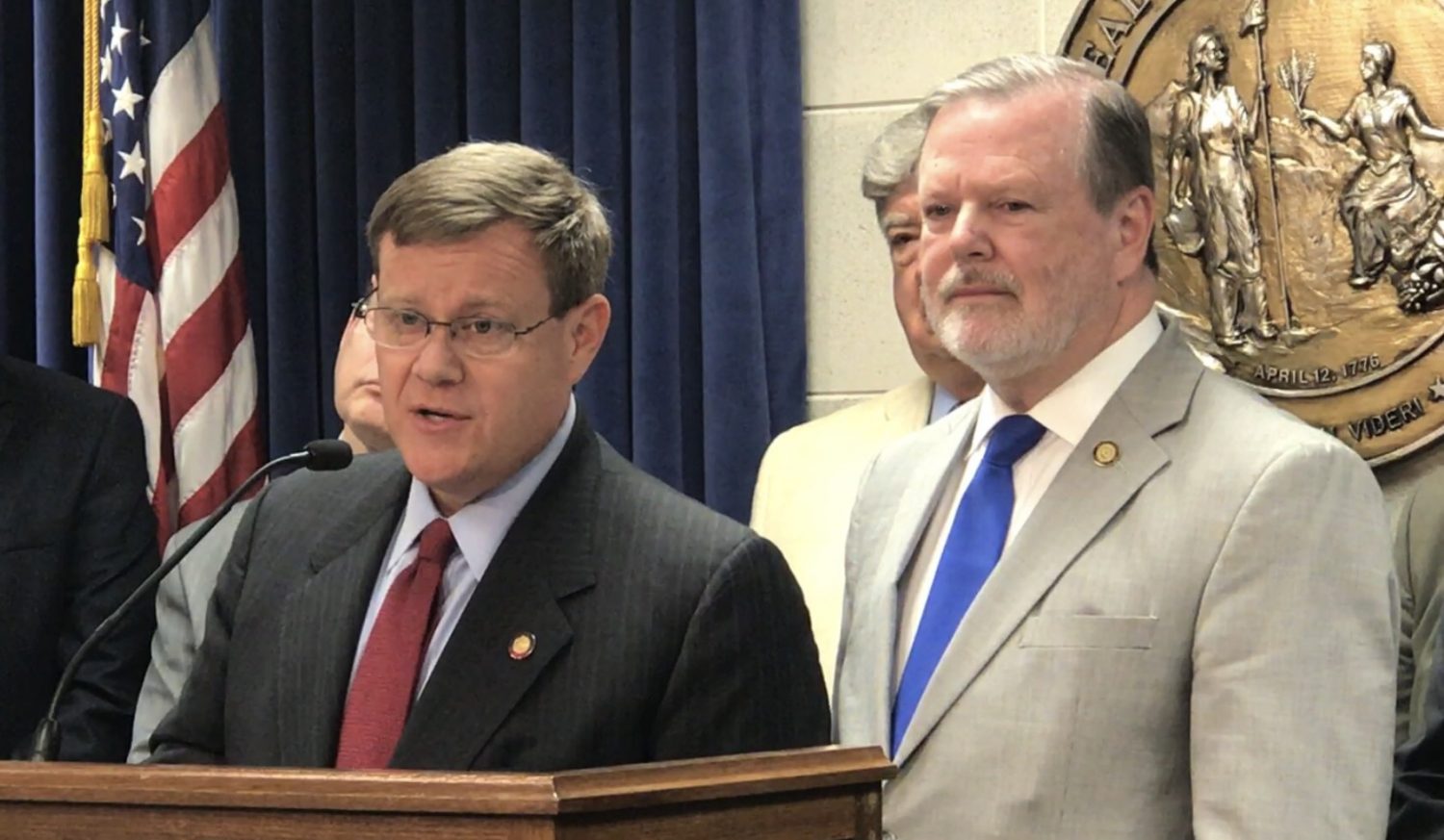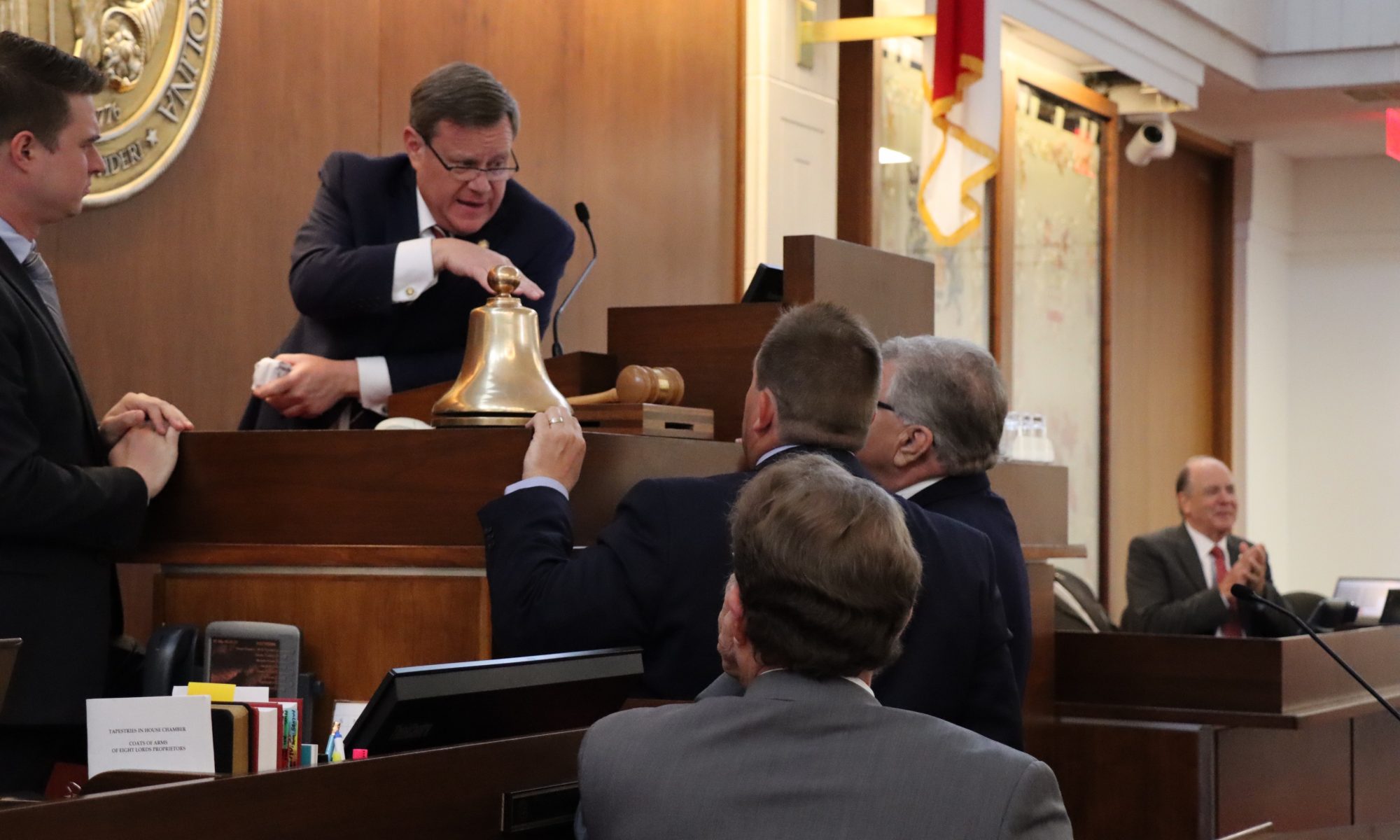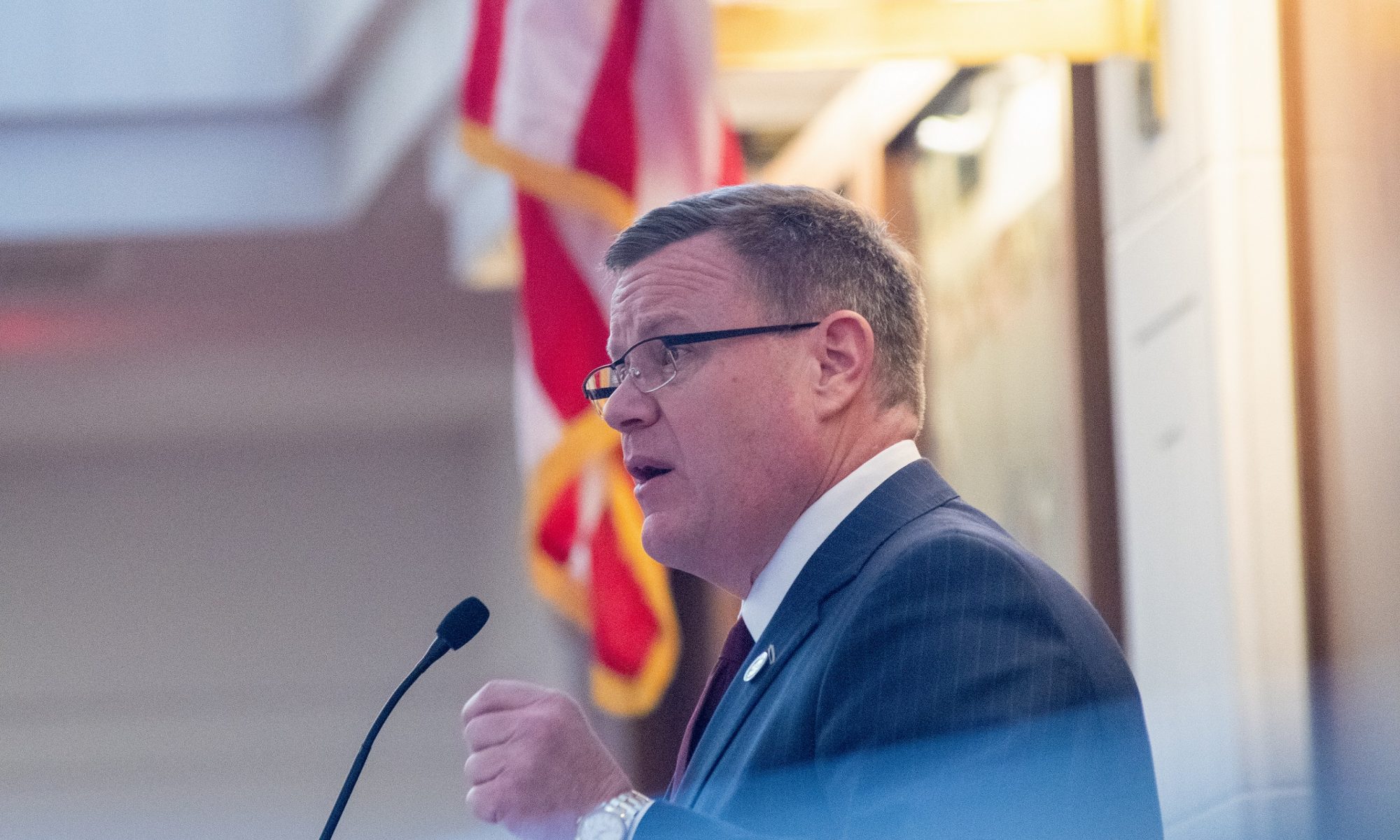NEWS: House Speaker Tim Moore Responds to Consensus Revenue Forecast for N.C.
House Speaker Tim Moore responded Tuesday to consensus revenue forecasts released by North Carolina’s nonpartisan budget agencies.
Today the Consensus Revised Revenue Forecast was presented to the Joint Full Chairs Appropriations/ Finance.
Analysts for both the General Assembly’s nonpartisan Fiscal Research Division and the Office of State Budget and Management predicted expect an estimated $6.04 billion in overcollections when compared to the May 2020 forecast, with total GF revenue up 13.6%, individual income tax is up to 12.6%, and sales and use tax is up 14.5% with corporate and franchise tax up 35.4%.
Expected growth over the biennium is estimated at 8% with FY 2021-22 shift-adjusted growth expected to be 4.5% and FY 2022-23 growth 3.4%.
The forecast projected a new $2.354 billion in recurring funds over the February revenue forecast for next year and $2.245 billion for FY 2022-23 compared to the February revenue forecast.
House Speaker Tim Moore (R-Cleveland) said in a statement:
“There is no question that the strength of North Carolina’s economic outlook is proof that Republican policies work, and it is no coincidence that our state is the number two destination for Americans fleeing other states with bleak economic outlooks. North Carolina’s overall fiscal policy has set the stage for a commitment to conservative tax policies and we will continue to work collaboratively with the Governor and the Senate to keep our state on an upward trajectory of economic growth.”
HB 453 Passes Through Senate, Heads to Governor for Signature
NEWS: General Assembly Leaders Announce Agreement on State Budget Total
In a joint statement, Sen. Berger and Speaker Moore said, “This agreement builds on the last decade of responsible Republican-led budgets resulting in a boom decade that put North Carolina on a strong trajectory to recover from the recession. As we work out the details of the budget, we intend to fulfill our commitment to balance the budget while saving for future needs and cutting taxes for the vast majority of residents.
“The agreement dedicates at least $4.2 billion in new capital spending funded through the State Capital and Infrastructure Fund to support critical needs across the state, including several transformational projects.”
NC House Moves to Get North Carolina Back to Work
North Carolina House Passes COVID Relief Bill (S172)
“As North Carolina and the rest of the country move forward and rebuild in the wake of a global pandemic, these are needed funds that will get businesses back on track and the economy moving in the right direction. The passage of S172 will ensure that these federal dollars get to those North Carolina businesses and citizens who need it,” commented Speaker of the House Tim Moore.
Speaker Tim Moore Responds to Governor Cooper’s State of the State
Raleigh, N.C.
Good Evening.
I’m Tim Moore, and it has been and continues to be one of the greatest honors of my life to represent the people of Cleveland County as a Republican in the North Carolina House of Representatives.
I have also been blessed with the opportunity to serve as the Speaker of the North Carolina House since 2015.
The great thing about serving in the House is that every person who calls our state home is represented here, from our bustling cities and metropolitan areas to our strong rural communities. There are 120 people from all corners of the state, from a wide variety of backgrounds and with many different views, and we all work together to make our state a better place to live and work. We each bring a different vision on how to achieve this, and we all do our best.
You have just heard from Governor Roy Cooper about his vision for the state of North Carolina. Despite being from different political parties, both Governor Cooper and legislative Republicans have many of the same end goals in mind. We all want North Carolina to be a place where people can have good jobs, safe homes, and provide their children the very best educational opportunities. We may have very different views about how to achieve those goals, but I and my fellow Republicans intend to try and find as much common ground as possible. In North Carolina, we aren’t afraid of our differences. Rather, we view our differences as a part of the rich fabric of our great state, as we work together to move North Carolina forward.
And we need to move forward. This past year has been difficult for families across North Carolina. We have had a year of a deadly health crisis and devastating job losses, political divisiveness and even civil unrest. If your family lost a loved one to COVID-19, let me, on behalf of all members of our legislature, extend my deepest condolences to you and your family.
Further, let me highlight one area of agreement among leaders in this state:we want all North Carolinians to feel comfortable making the personal choice to be vaccinated against COVID-19 so that our state can finally put this pandemic behind us. The good news is that we are seeing the light at the end of the tunnel—case numbers, hospitalizations and deaths are dropping to lower and lower levels and I am confident we will soon put this pandemic behind us.
As we emerge from the COVID crisis, I am happy to say that North Carolina is poised have one of the strongest state recoveries in the nation. Because of the strength of our people and sound, fiscally conservative governance over the last twelve years, North Carolina is a national leader in economic growth—but we must stay the course.
Smart budgeting, regulatory reforms and tax cuts have led to increased economic growth, and I am proud to say that our state government has the largest budget surplus that it has had in many years. While many other states are hiking taxes, we have the ability to make further tax cuts. In fact, our strong economic climate is attracting major new employers—including a major announcement made just today that Apple Computer will be making North Carolina its East Coast hub and adding at least 3,000 high-paying jobs
While we work together towards the same goals – there remain differences in our approaches. One major area of disagreement between the Governor and Republicans is how to handle the good fortune of this major budget surplus.
While the Governor will push for large increases in state programs, bureaucracy and spending, we know that this is a recipe for unsustainable budgeting that will eventually lead to painful cuts or tax hikes in the near future.
Instead, Republicans will push to make investments that help the working families and small businesses of this state. We will use this one-time surplus of funds on capital projects and sectors to invest in our state. Whether through a bond, federal funds or our substantial cash reserves, we will dramatically improve our rural broadband access, so schools and businesses throughout North Carolina will have the tools they need to compete in the 21st century economy.
We will push to dramatically increase funding for water and sewer infrastructure, so these communities aren’t left behind. We will also invest in the transportation infrastructure needed to move our economy forward. We’ve always been known as a “good roads state” and we’ll spend on the roads, bridges and highways necessary to maintain that reputation.
We will also invest one-time funds in assisting our children. COVID 19 has brought challenges to almost every facet of life, but it has especially impacted the education of North Carolina’s children. After a year of devastating school closures, North Carolina families are desperate for their children to recover as much of the lost learning opportunities as possible.
I am proud to say the legislature is doing its part to help students catch up. Virtual classes made it abundantly clear that our students need the in person contact a normal school day provides. That’s why we passed legislation reopening in-person education in every public school district in this state for every parent that wants that choice.
Additionally, we have created a robust, fully-funded summer school option for all students to attend at no cost to their families. Every child deserves the promise of a strong education, and while this year presented challenges in delivering that education, we are committed to ensuring all children recover their lost learning.
North Carolina Republicans are also laser-focused on reviving our small businesses. Shutdowns, lock-downs, capacity restrictions, and other mandates devastated many businesses across the state. Many were ultimately only able to stay afloat and employing North Carolina workers due to assistance from President Trump’s Paycheck Protection Program. Over 200,000 of these loans were made last year, and many of these businesses are still hanging on by a thread. It’s time for North Carolina to give those businesses additional tax relief, just like 47 other states have already done, giving these businesses a crucial lifeline to stay afloat.
While COVID-19 hurt our small businesses this year, our tax code should not add to their pain.
North Carolina Republicans in both chambers are also looking at other broad-based tax relief proposals to put dollars back in the wallets and pocketbooks of North Carolina families—because we believe state government shouldn’t spend a penny more than it has to, and should return anything extra to the taxpayers whose money it is in the first place.
The civil unrest many North Carolinians saw this last year was also troubling, bringing long-ignored disparities in criminal justice to the surface. In North Carolina, we are pursuing bipartisan criminal justice reforms that end disparities while continuing to respect our law enforcement officers. It’s not an either—or question, we can pass legislation to crack down on rioters and looters and those who hurt law enforcement officers while also ensuring police are trained to prevent abuse and that the few officers who have abused their authority are held accountable.
But let me be clear—no proposal to weaken the “thin blue line” by defunding the police will ever be passed by this legislature.
Finally, I know that election integrity is top of mind for many North Carolinians watching tonight. Legislative Republicans want to keep it easy to vote, but hard to cheat. We’ll preserve voter access while fighting to finally put Voter ID in place. It has been two years since North Carolina voted for this measure and it’s time for that vote to be respected.
We will keep access to voting by mail for those who need that option, with our appropriate safeguards still in place North Carolina has many voting options, but I know that the gold standard of voting integrity is voting in-person, on election day, using a photo ID.
With all these challenges—tax policy to education, criminal justice reform and job growth, transportation and election integrity, I am sure that this session of the General Assembly will highlight differences of opinion. Republicans and Democrats will have to work hard together – and we won’t always agree on the best way to do things, but I assure you that we all agree that we want North Carolina to be the very best it can be – we want to leave North Carolina a more prosperous, healthier, and stronger state than we found it for our children.
God bless you, and God bless the State of North Carolina.
News: Speaker Moore’s Statement on New Apple Campus Employing 3000 Workers and Investing Over $1 Billion in North Carolina
NC House of Representatives Unanimously Passes House Bill 370, No Veteran Left Behind
Raleigh, N.C. – The North Carolina House of Representatives unanimously passed House Bill 370: No Veteran Left Behind. This legislation would establish and implement a pilot program to expand the Veterans Justice Intervention program.
The Veterans Justice Intervention program helps justice-involved veterans who suffer from unique mental health and substance abuse issues avoid unnecessary extended incarceration by ensuring that eligible veterans have timely access to veterans’ services.
“We are very fortunate to partner with the Independence Fund” said Speaker Tim Moore. “The work they have done to support veterans has made a tremendous impact and we are excited to continue the work of helping the heroes who have sacrificed so much for us.”
The Bill appropriates a directed grant of $1,000,000 for the 2020-2021 fiscal year to The Independence Fund, Inc., to establish and implement the pilot program. The Independence Fund, Inc. is a nonprofit organization dedicated to improving the lives of veterans and their families.
“As a thirty-three year law enforcement veteran, this is a much-needed bill that will be a great benefit to local communities,” said Rep. Charlie Miller (R-Brunswick), who is a primary bill sponsor and the Chief Deputy of the Brunswick County Sheriff’s Office. “I have personally dealt with situations where this training would have been very helpful. I want to thank The Independence Fund for their partnership in this effort to provide law enforcement with additional tools to assist veterans.”
House Bill 370 was sent to the Senate.
Gov. Cooper Opposed Savings Required by Budget Committee
Raleigh, N.C. – The North Carolina House Appropriations Committee passed House Bill 7 ‘Strengthen Savings Reserve’ on Thursday to require state lawmakers store funds in a savings reserve every fiscal year.
Democrat Gov. Roy Cooper opposed the savings account last year, criticizing Republicans for “building up the rainy day fund in excess of what’s necessary for the state.” Continue reading “Gov. Cooper Opposed Savings Required by Budget Committee”
